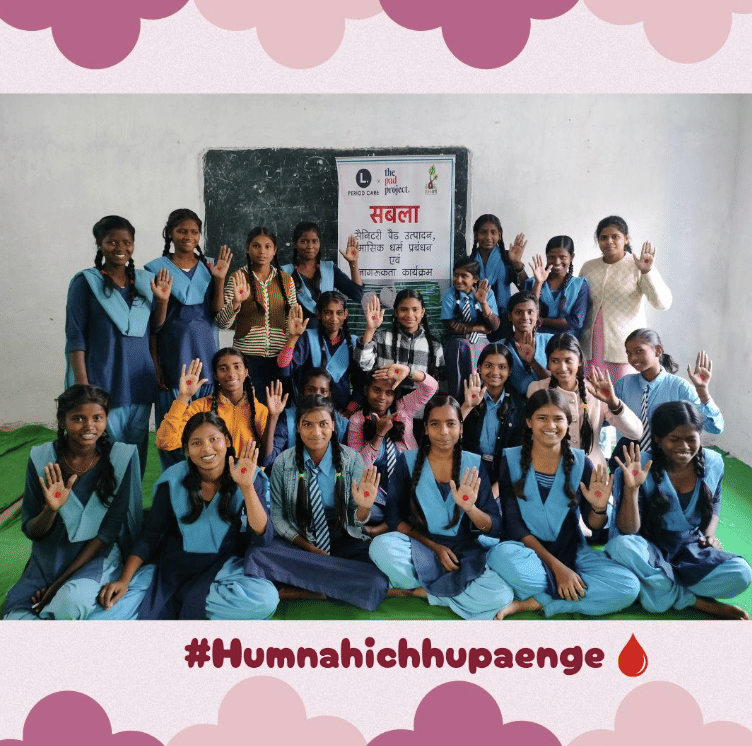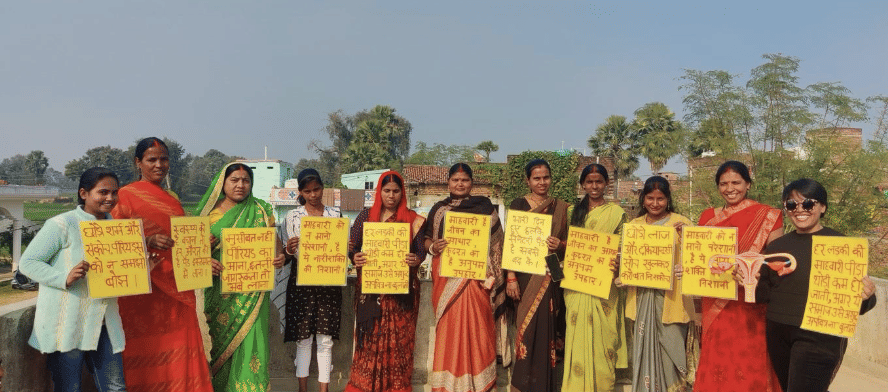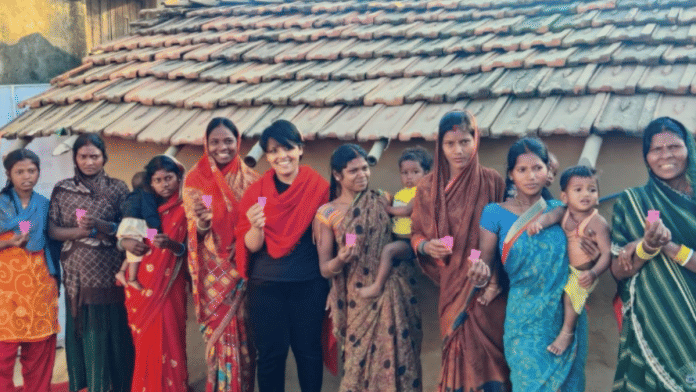Thank you dear subscribers, we are overwhelmed with your response.
Your Turn is a unique section from ThePrint featuring points of view from its subscribers. If you are a subscriber, have a point of view, please send it to us. If not, do subscribe here: https://theprint.in/subscribe/
On this World Health Day, as the world reflects on holistic well-being and equitable healthcare access, there’s one aspect of health that continues to remain shrouded in silence and stigma — menstrual health. For millions of women, especially in underprivileged rural communities, managing periods is still a matter of shame, secrecy, and struggle. It’s time we change that. It’s time we mainstream menstrual health.
In the silent corners of rural India, where red stains are still seen as shame, menstrual health continues to be whispered about, avoided, and deeply stigmatized. For generations, menstruation has been cloaked in taboo—something impure, secret, and shameful. This silence has not only cost women their dignity, but also their health, mobility, education, and confidence.
But it’s time.
It’s time we change the narrative.
It’s time we mainstream menstrual health—especially in underprivileged, rural communities where a period is often the beginning of silence, exclusion, and suffering.
The Reality: A Silent Crisis
In many villages, girls drop out of school as soon as they begin menstruating. Women, unaware of basic hygiene practices, continue to use ash, sand, or dirty cloths—exposing themselves to infections, infertility, and even death. They are told not to cook, touch water, plant trees, or even enter their own kitchens. And worst of all, they believe this is normal.
This is not just a health issue.
It’s a gender issue.
It’s a dignity issue.
And it’s a matter of basic human rights.
SumArth: Rewriting the Story, One Period at a Time
At SumArth, we knew the change had to begin from the ground up—from women who were told their bodies are shameful, from girls who never had the chance to ask, “Why?”
We started by listening.
Then we acted—with care, consistency, and courage.
SumArth’s menstrual health initiative in the Naxal-affected regions of Gaya, Bihar, focuses on empowerment through education, accessibility, and dignity.
Here’s how we are making menstruation normal, manageable, and dignified:
- Awareness & Education: Busting Myths, Building Confidence
We conduct regular workshops with women and adolescent girls, demystifying menstruation, teaching menstrual hygiene, and encouraging open conversations. Slowly, women began to raise their hands, ask questions, and share stories. That first “why” is always the beginning of change.
- Accessible Hygiene Products: From Ash to Affordability
We set up a fully automatic sanitary pad-making unit, run entirely by rural women. These pads are affordable, eco-friendly, and easily accessible within the community. Women are not just consumers—they are the creators, entrepreneurs, and change agents.
We also introduced menstrual cups—a sustainable and long-term solution. Despite the initial hesitation, many women embraced the cups with pride and relief, breaking free from the dependence on costly disposable products.
- Involving Men and Boys: Ending the Silence Together
We don’t leave men out of the conversation. We conduct sessions for boys and men, helping them understand that menstruation is not “women’s business”—it’s a human reality. When fathers buy sanitary pads and husbands support menstrual cup usage, dignity finds its place at home.
- Creating Safe Spaces: From Shame to Celebration
Our community centers now serve as safe spaces where menstruation is not a secret anymore. Women openly talk about periods, flaunt their cloth pad kits, and teach others. Menstruation is no longer a reason to hide—it is slowly becoming a symbol of strength.
A Dignified Life is Not Too Much to Ask
Today, over 25,000 women and 5,000 adolescent girls in rural Bihar have been reached through SumArth’s menstrual health programs. Many now bathe during periods, deny sex during menstruation, eat pickles without fear, and attend school or go to the fields freely. These may seem like small victories—but in reality, they are radical acts of rebellion against centuries of silence.
They are choosing dignity.
They are choosing health.
They are choosing themselves.
The Road Ahead
Mainstreaming menstrual health means normalizing conversations, institutionalizing education, and universalizing access to hygienic menstrual practices. We need policies that support production units, subsidize reusable products, and include menstrual health in every school curriculum.
We can no longer afford to whisper.
We can no longer afford to wait.
Because every time a girl skips school during her period,
every time a woman hides her pad in shame,
every time a daughter is told “don’t touch that,”—
we fail them.
Let’s change that.
Let’s mainstream menstrual health.
With dignity. With equality. With humanity.


These pieces are being published as they have been received – they have not been edited/fact-checked by ThePrint.


